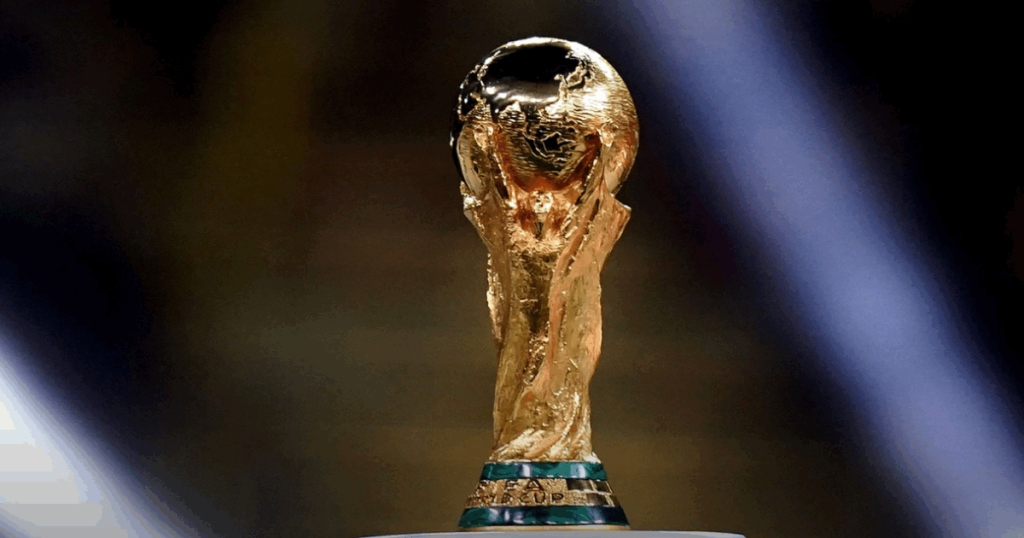The 2026 FIFA World Cup, set to be the largest in history with 48 participating teams, will implement a phased ticket sales approach, offering fans various purchase options and price points. Initial single-match ticket prices range from a budget-friendly $60 for group stage matches to a premium $6,710 for the final. These prices, however, are subject to fluctuation based on demand, introducing a dynamic pricing model that reflects the desirability of specific matches. Fans will be able to tailor their World Cup experience by choosing from single-game tickets, venue-specific tickets allowing attendance at multiple matches within a single stadium, and team-specific packages ideal for devoted supporters following their nation’s progress throughout the tournament. This tiered approach provides flexibility and caters to varying budgets and interests.
The first phase of ticket sales will commence with a presale draw exclusively for Visa cardholders. To participate, fans must register for a FIFA ID on the official website, ensuring they are eligible for the randomized selection process. This presale draw will take place between September 10th and 19th, giving registered fans a window of opportunity to secure their preferred matches. Selected applicants will then be granted access to purchase tickets starting October 1st. To prevent hoarding and ensure wider accessibility, FIFA has implemented purchase limits, restricting individuals to a maximum of four tickets per match and 40 tickets for the entire tournament. This measure aims to distribute tickets fairly among enthusiastic fans.
Following the initial presale, subsequent phases of ticket sales will be rolled out in the coming months, offering further opportunities for fans to acquire tickets. Registration for the second phase is scheduled for October 27th to 31st, with sales commencing from mid-November through early December. This staggered approach allows FIFA to manage demand and ensures a smooth and equitable distribution process. The third phase, strategically timed after the official tournament draw on December 5th in Washington, D.C., will enable fans to apply for tickets to specific matches, offering greater control over their chosen fixtures. This post-draw phase allows fans to align their ticket purchases with their desired match-ups.
As the tournament draws closer, FIFA will implement a first-come, first-served system for remaining ticket inventory, providing a final opportunity for fans to secure their spots. This “last-minute” availability caters to those who may have missed earlier sales phases or are making late travel plans. In addition to the standard ticket options, FIFA plans to introduce specialized ticketing products to enhance the fan experience. These include supporter tickets, designed for fans who wish to sit amongst fellow supporters of their team, fostering a vibrant and communal atmosphere within the stadium. Conditional supporter tickets will also be available, allowing fans to reserve seats for potential knockout round matches involving their team, subject to their team’s qualification.
This conditional approach removes the uncertainty of securing tickets after a team progresses and ensures dedicated fans can continue supporting their nation’s journey. Recognizing the potential for secondary market activity and inflated ticket prices, FIFA will launch an official resale platform, providing a secure and regulated environment for fans to buy and sell tickets. This initiative aims to protect fans from unscrupulous resellers and ensure fair market value for tickets. By implementing a multifaceted ticketing strategy, FIFA aims to cater to a broad range of fan preferences and budgets, ensuring accessibility and a positive experience for attendees of the 2026 World Cup.
The multi-phase approach allows FIFA to manage demand effectively, accommodating varying levels of fan engagement. The initial presale for Visa cardholders creates anticipation and rewards loyal customers, while subsequent phases provide ample opportunities for others to participate. The introduction of specialized ticket products, such as supporter and conditional supporter tickets, caters to specific fan needs and enhances the overall experience. Furthermore, the official resale platform mitigates the risks associated with the secondary market, ensuring fans are protected. The tiered pricing structure, with prices ranging from affordable to premium, aims to make the World Cup accessible to a diverse audience, fostering inclusivity and global participation. Finally, the staggered approach to ticket sales allows FIFA to gather valuable data on demand and adjust strategies accordingly, maximizing revenue while ensuring a fair and transparent process for all.
In conclusion, FIFA’s comprehensive ticketing strategy for the 2026 World Cup demonstrates a commitment to enhancing the fan experience while ensuring accessibility and fairness. The multi-phase approach, combined with varied ticket options and a regulated resale platform, provides fans with multiple opportunities and choices. The dynamic pricing model reflects the value of specific matches, while purchase limits prevent hoarding and promote equitable distribution. By implementing these measures, FIFA aims to create a positive and memorable World Cup experience for fans from around the globe.














